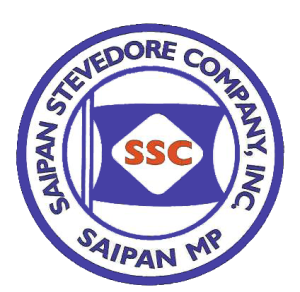34.15 – MISCELLANEOUS
RULE: 34.15 – MISCELLANEOUS Eff: 01SEP2010
|
Effective |
01SEP2010 |
|
Filing Codes |
C |
1. No cargo will be received or issued without proper
documentation and clearance from the carrier or its
agents, customs and quarantine. No cargo will be
received or issued until it is properly prechecked and
accounted for in accordance with the procedures of
accountability of the terminal operator.
2. Partial clearance of bills of lading will not be
allowed.
3. The Port General Manager may demand cash in advance
before any service can be rendered to or for any person,
firm, or corporation who has a past due account with
the terminal operator.
4. The terminal operator's pallets, tarpaulins and
working gears are not to leave the Port area at any
time without authorization of the General Manager or his
authorized representatives.
5. Import cargo will be given free storage for a period
of two hundred forty (240) hours or ten (10) days after
the ship had departed, from Monday thru Friday,
including Saturdays, Sundays and Holidays.
6. Export cargo will be given seven (7) days after
notice of firm booking and delivery, including Saturdays,
Sundays and Holidays. In the event that the vessel
arrival is delayed after a specified ETA, demurrage
charges will be assessed for the account of the carrier.
7. Explosives, guns and ammunitions, inflammables and
hazardous cargo shall be allowed no free time
and shall be subject to immediate removal from the wharf
premises.
8. Livestock shall be allowed no free time and are only
permitted to pass over the wharf subject to immediate
loading and removal.
9. The refrigerated cargo shall be allowed no free time.
Cargo by its inherent nature requires a presumption of
immediate delivery upon discharge.
10. Salvage or offensive freight; salvaged freight in
damaged or offensive condition or offensive freight of
any nature may, at the option of the terminal operator,
be refused any free time on the wharf and shall be
subject to immediate removal.
11. Delivery of cargo by the carrier from the end of the
vessel's tackle directly to vehicle or other conveyance
owned by or under the control of the consignee or his
agent thus eliminating terminal services being provided
by the terminal operator. Special arrangement must be
made between the terminal operator and the consignee
before under the hook delivery will be made.
12. All operations required to complete stevedoring
work in hatches on vessels shall be standard operation
of the port and that all supervision will be
accomplished by its personnel without interference by
the carrier. The carrier may be present during
operations and may recommend necessary changes to the
Operations Supervisor.
